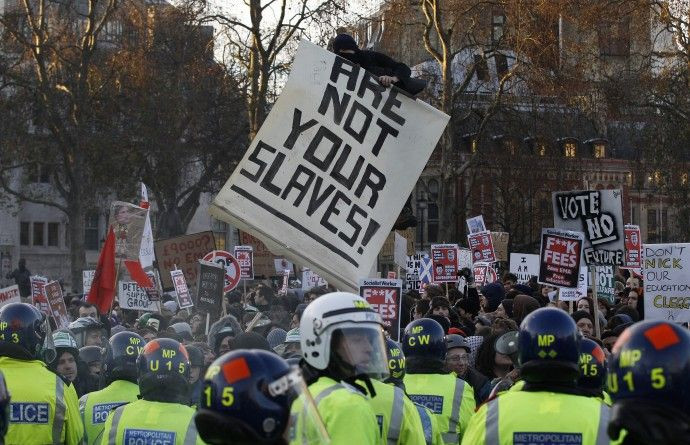UK Universities brace for budget cuts up to 6 pct

The first round of cuts in government funding to universities in the UK is likely to be announced shortly as the budgets for 2011-12 are revealed. The cuts are expected to take effect from April 2011 and could amount to 6 percent of the total universities budget, costing approximately £300-400m in grant money to universities this year.
This would be the first in a series of reductions to the higher education budget announced as part of the government's Comprehensive Spending Review announced in October 2010. Struggling to address a huge budget deficit, the Review called for a reduction in spending by the state in different departments; this included a reduction in the universities budget by 40 percent over a period of 4 years, which translates into a cut of £2.9 billion to be achieved by 2014-15.
The current annual settlement, however, is not expected to include the huge cuts in teaching budgets which universities seek to recoup through the rise in tuition fees sanctioned by the Government. Even so, the present round of cuts if announced, being imposed a year earlier than the new fees regime, is likely to seriously impair the ability of universities to maintain the quality of courses on offer. Indeed, in some cases, the very existence of some courses - especially in the arts, humanities and social sciences - is now in danger.
There seems little chance that the government will accede to requests from universities to postpone the initial cuts till the fee hike becomes operational and for now, the institutions merely await more details of likely cuts in subsequent years so that they may plan for the longer term future. This is likely to be spelt out in the letter containing the annual budget provisions for the Higher Education Funding Council for England, which is responsible for channelizing government funds to institutions.
It has been a tumultuous year for higher education in the UK, which hosts 18 out of the world's top 100 universities according to an annual ranking by Times Higher Education - QS. Universities started to see widespread job losses and closure of courses as early as the beginning of the year, following preliminary cuts in funding by the previous Labour government in an attempt to bring the fiscal deficit under control. As universities and academics warned of severe erosion of standards and also virtual extinction in some cases, civilian protests and sporadic clashes and strikes ensued.
Earlier in December, following recommendations of the Browne report on funding of higher education, the new coalition in power passed the very controversial decision to raise the cap on tuition fees from just over £3000 to £9000. The rise in fees, together with the proposed cuts to state funding of higher education, put the burden of the deficit reduction plan on students to a great extent, prompting street violence and unrest of a kind not seen in London in a long time.
© Copyright IBTimes 2024. All rights reserved.





















